Charles E W Bean, Diaries, AWM38 3DRL 606/89/1 - September - October 1917 - Part 1
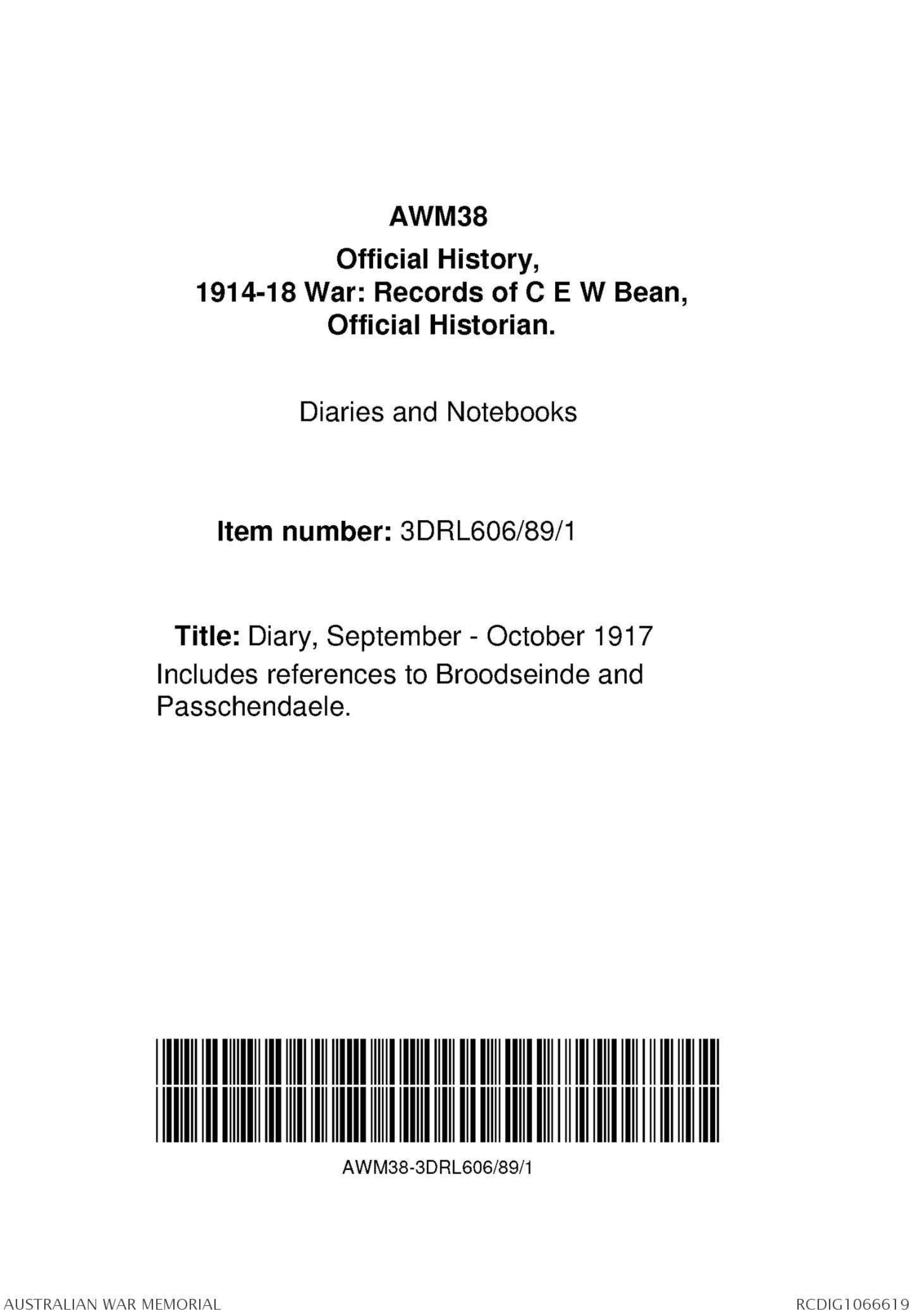
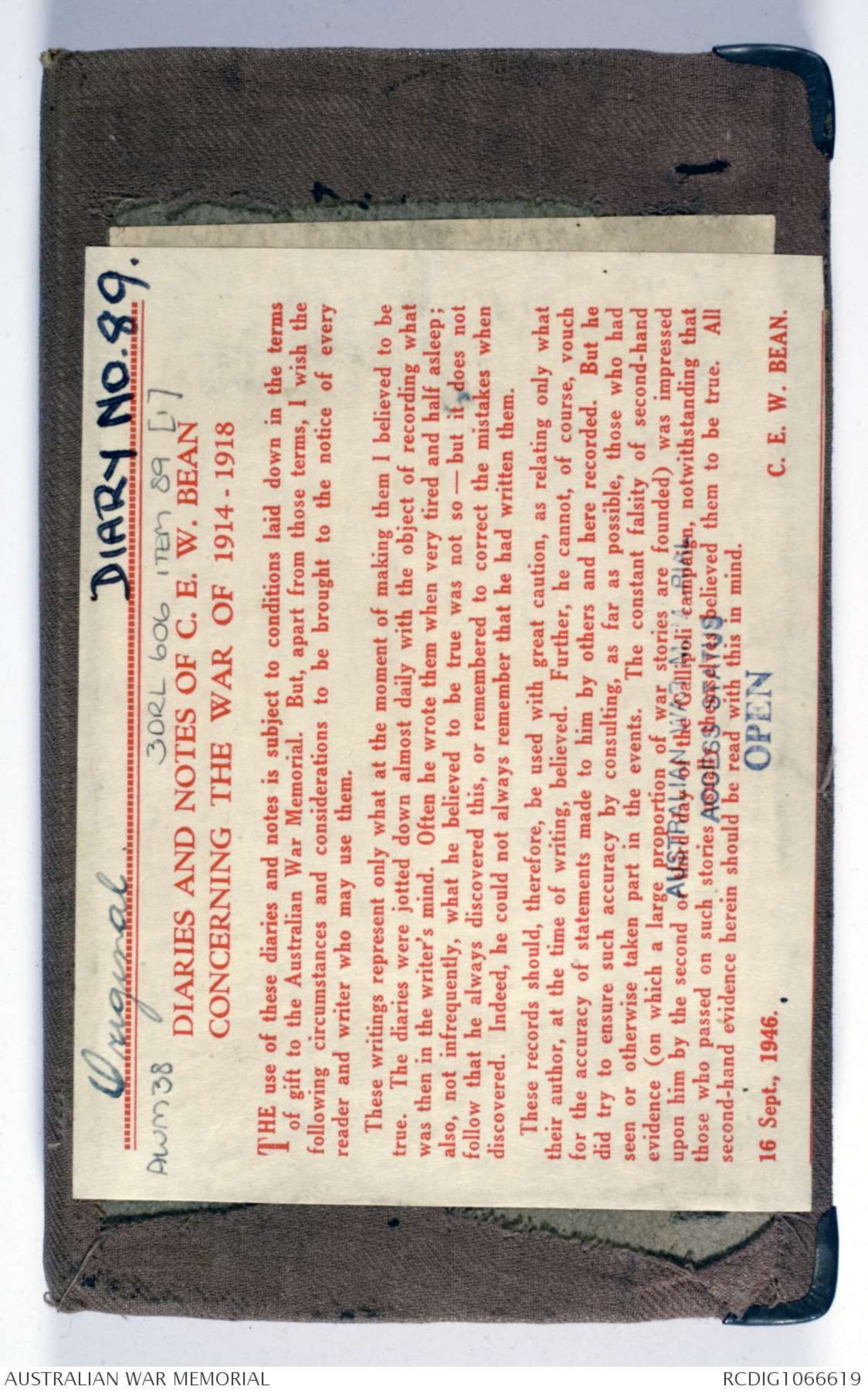
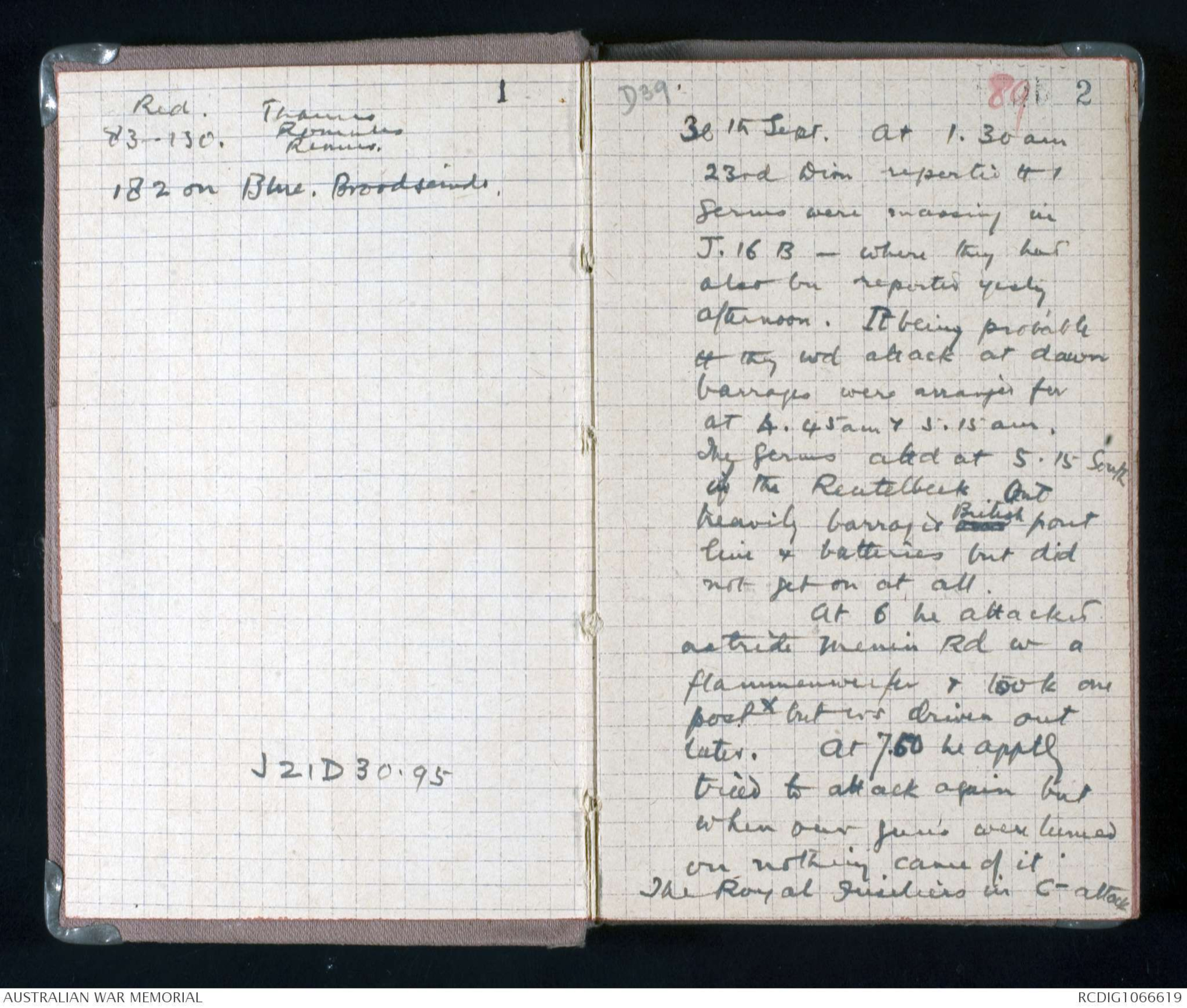
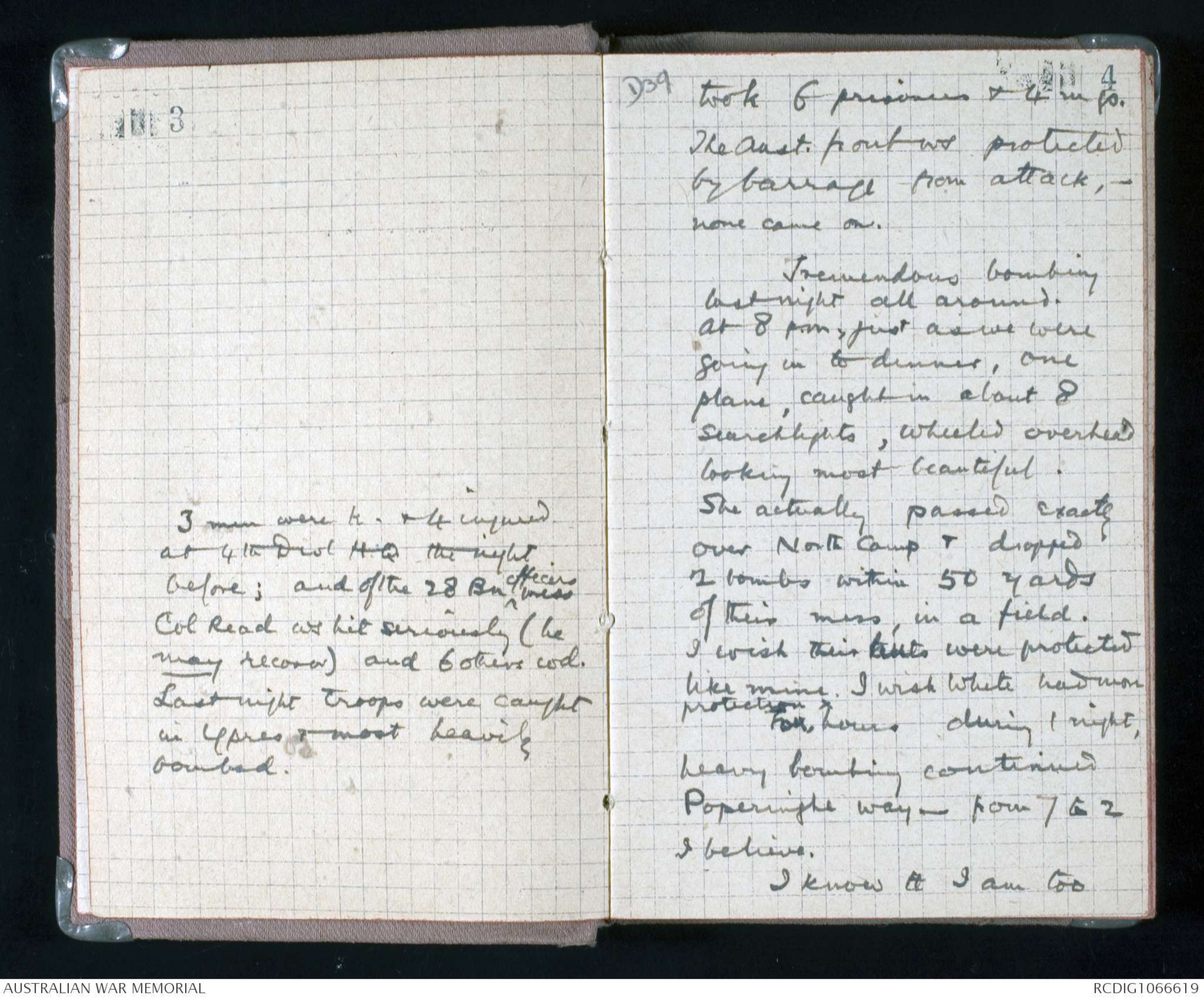
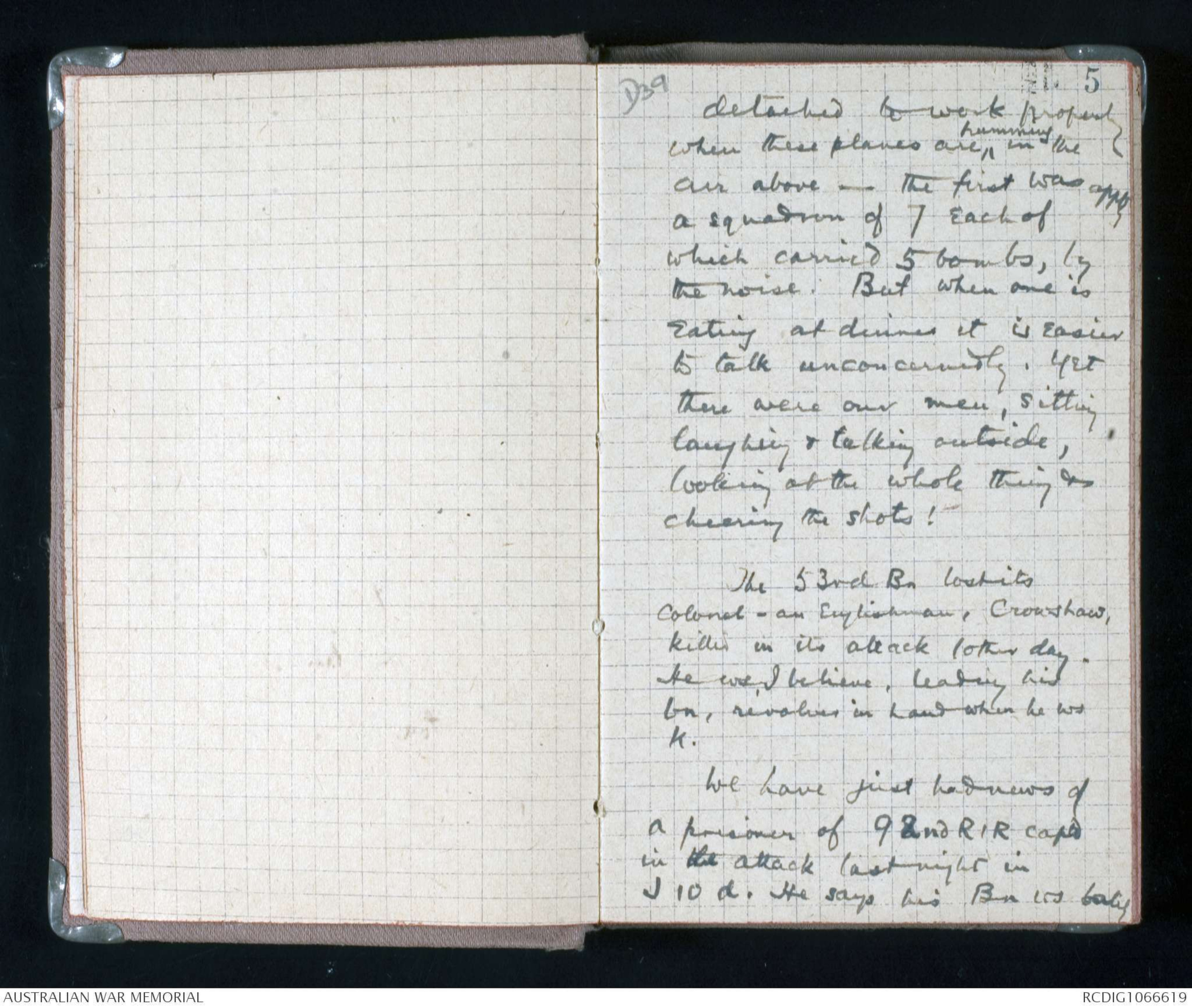
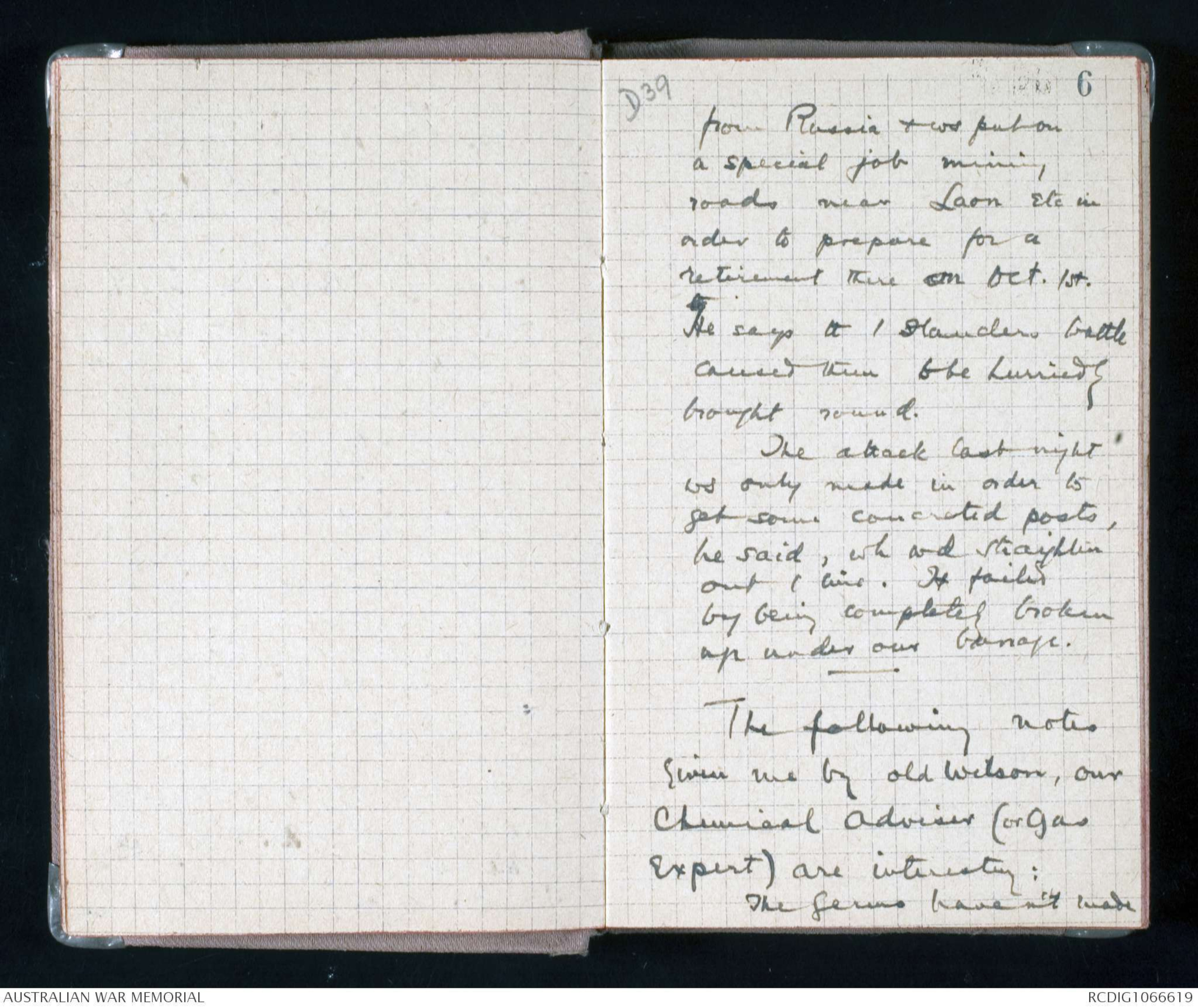
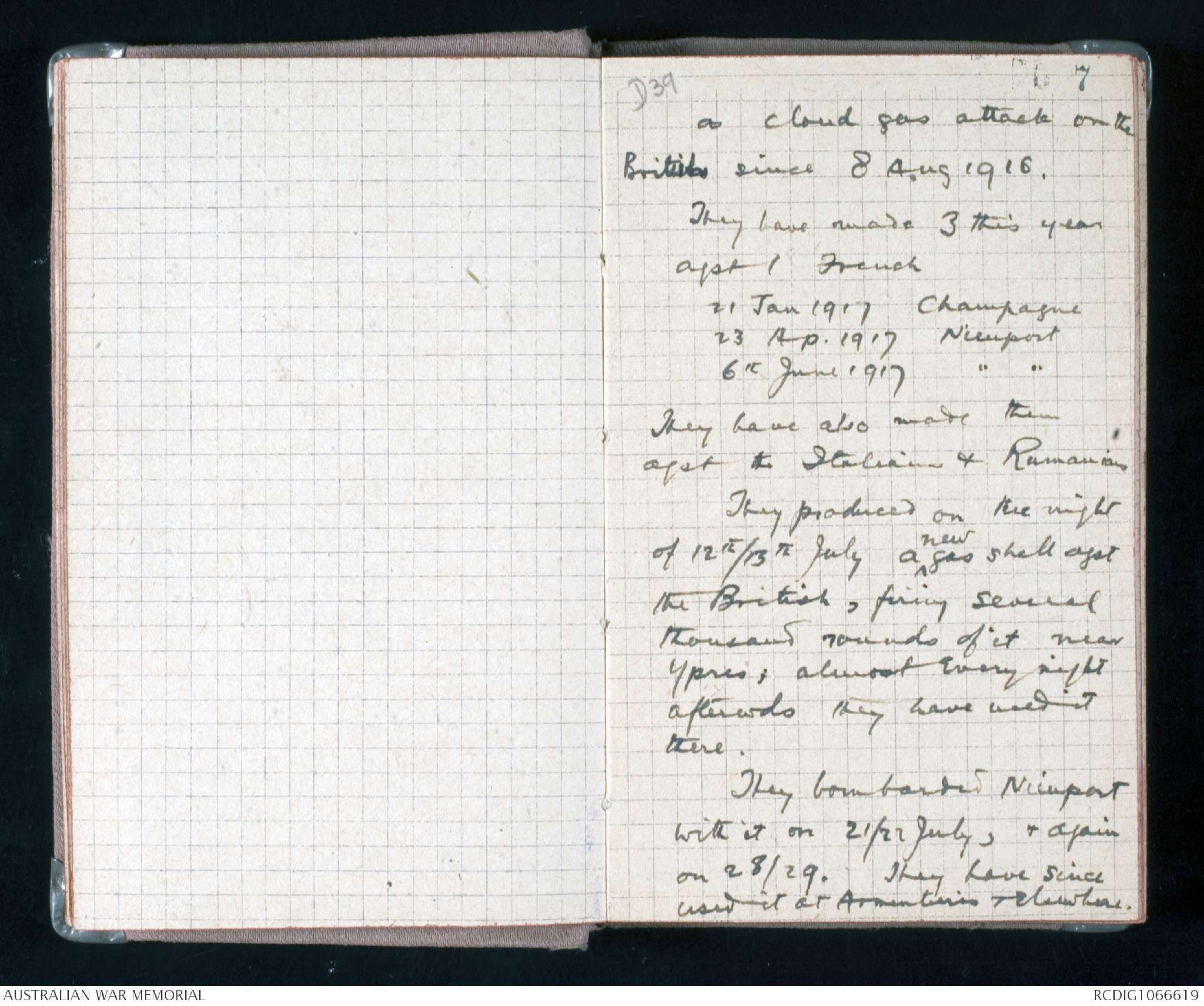
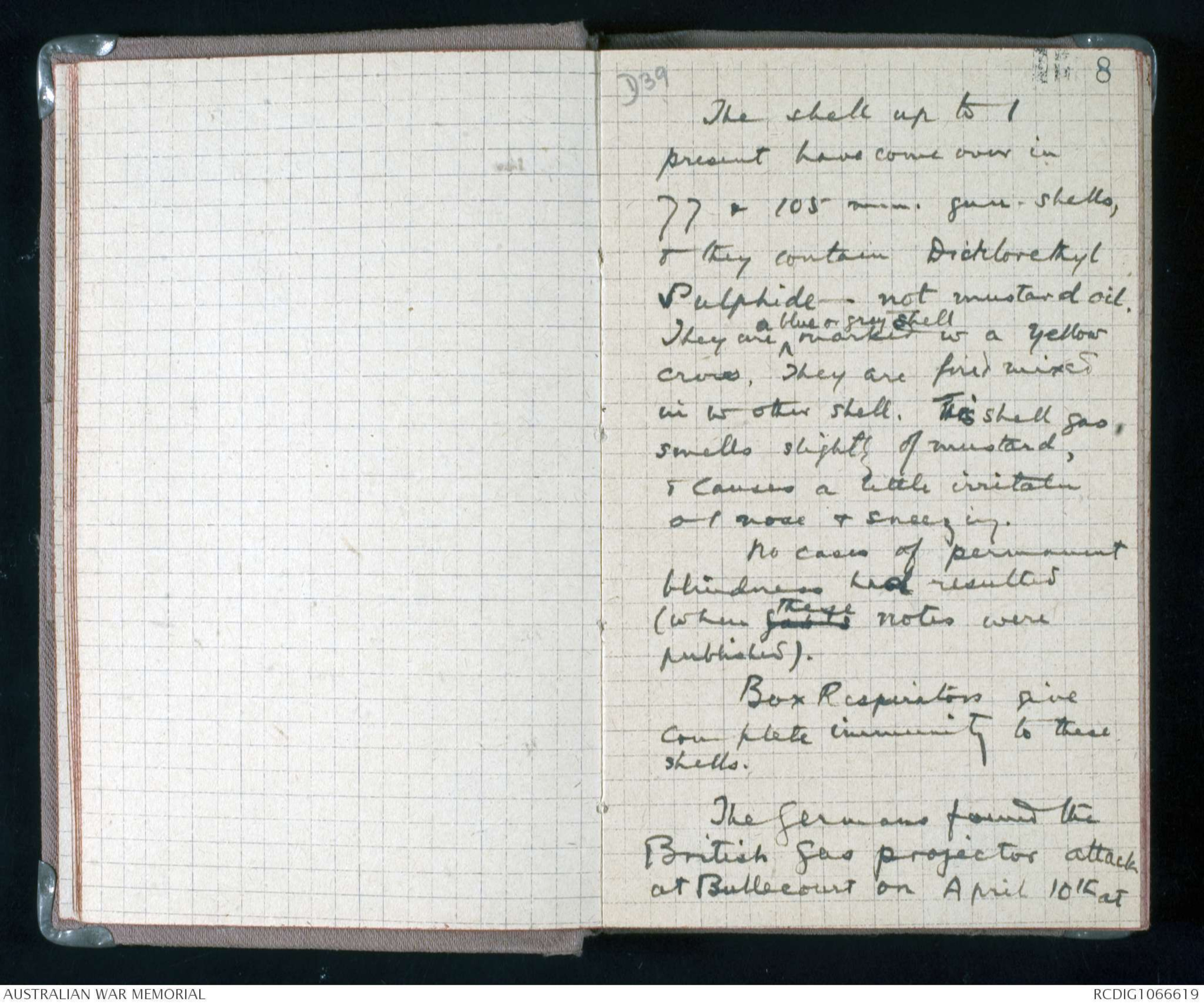
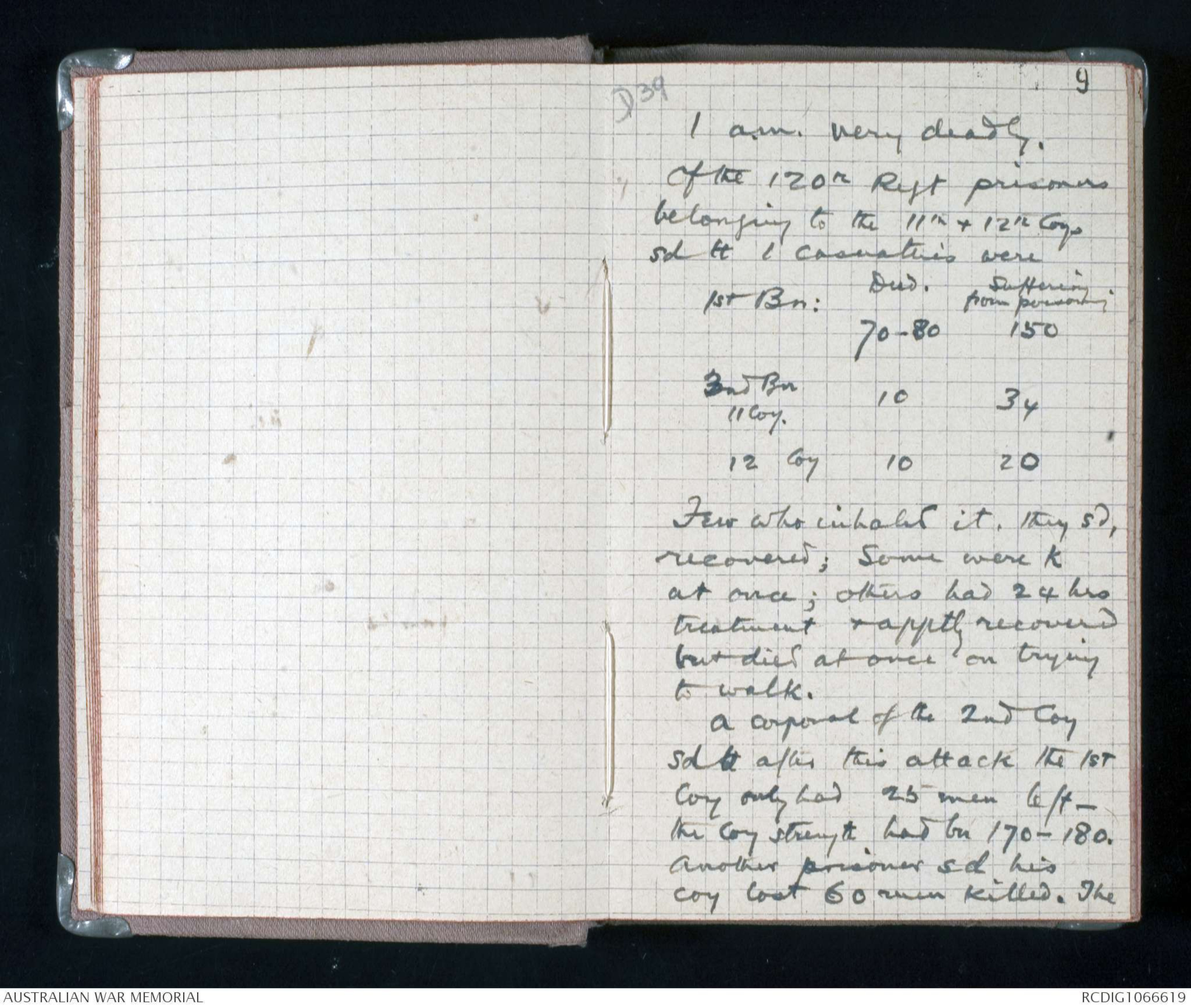
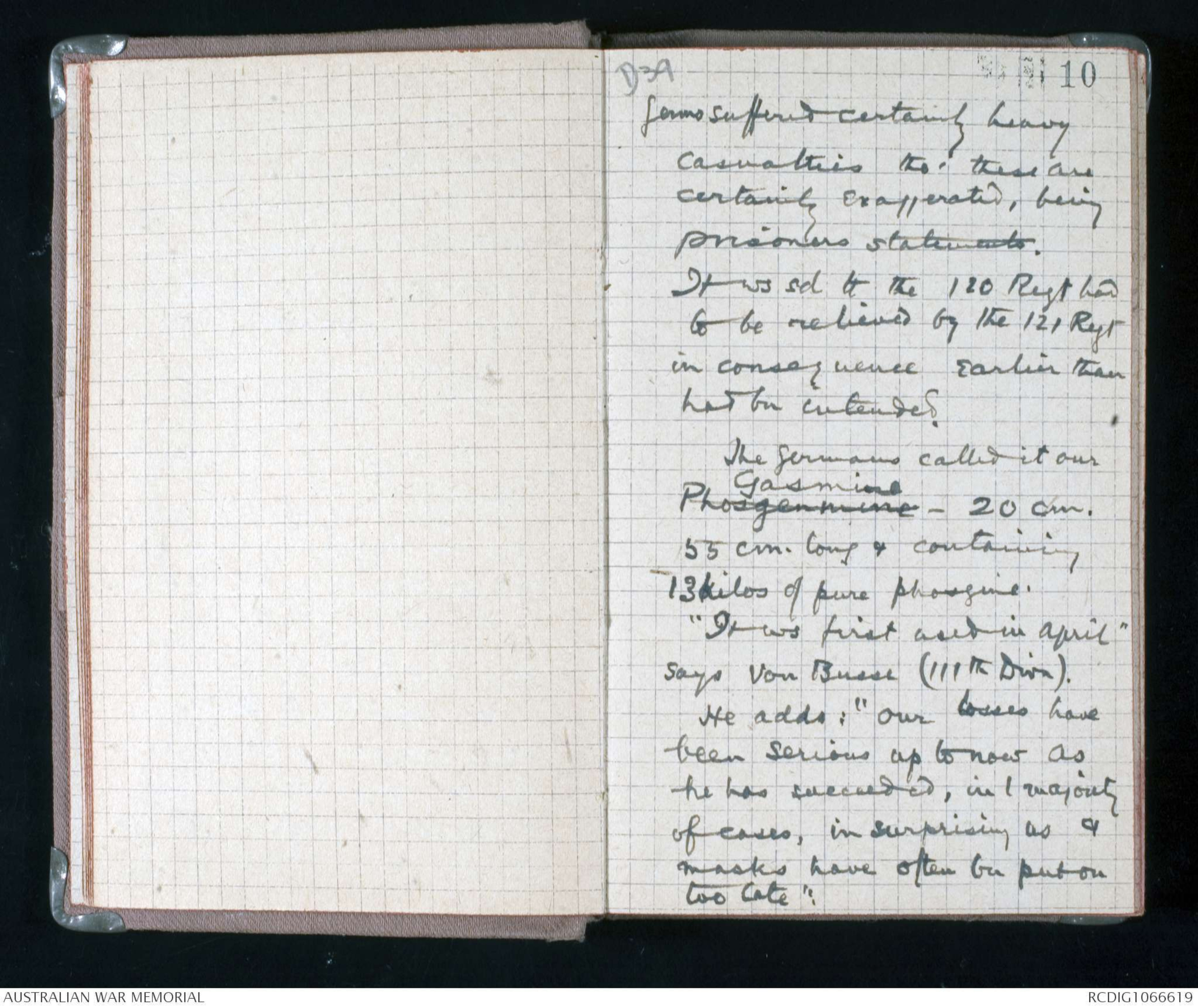
AWM38
Official History,
1914-18 War: Records of C E W Bean,
Official Historian.
Diaries and Notebooks
Item number: 3DRL606/89/1
Title: Diary, September - October 1917
Includes references to Broodseinde and
Passchendaele.
AWM38-3DRL606/89/1
Original
DIARY NO.89.
AWM38
3DRL 606 ITEM 89 [1]
DIARIES AND NOTES OF C.E.W. BEAN
CONCERNING THE WAR OF 1914 - 1918
The use of these diaries and notes is subject to conditions laid down in the terms
of gift to the Australian War Memorial. But, apart from these terms, I wish the
following circumstances and considerations to be brought to the notice of every
reader and writer who may use them.
These writings represent only what at the moment of making them I believed to be
true. The diaries were jotted down almost daily with the object of recording what
was then in the writer's mind. Often he wrote them when very tired and half-asleep;
also, not infrequently, what he believed to be true was not so - but it does not
follow that he always discovered this, or remembered to correct the mistakes when
discovered. Indeed, he could not always remember that he had written them.
These records should, therefore, be used with great caution, as relating only what
their author, at the time of writing, believed. Further, he cannot, of course, vouch
for the accuracy of statements made to him by others and here recorded. But he
did try to ensure such accuracy by consulting, as far as possible, those who had
seen or otherwise taken part in the events. The constant falsity of second-hand
evidence (on which a large proportion of war stories are founded) was impressed
upon him by the second or third day of the Gallipoli campaign, notwithstanding that
those who passed on such stories usually themselves believed them to be true. All
second-hand evidence herein should be read with this in mind.
16 Sep., 1946.
C.E.W. BEAN
AUSTRALIAN WAR MEMORIAL
ACCESS STATUS
OPEN
1
Red.
83-130.
Thames
Romulus
Remus.
182 on Blue. Broodseinde.
J21D30.95
D39.
89 2
30th Sept. At 1.30 am
23rd Divn reported tt /
Germs were increasing in
J.16 B - where they had
also bn reported yesty
afternoon. It being probable
tt they wd attack at dawn
barrages were arranged for
at 4.45 am & 5.15 am.
The Germs attd at 5.15 South
of the Reutelbeck. Out
heavily barraged xxx British front
line & batteries but did
not get on at all.
At 6 he attacked
astride Menin Rd w a
flammenwerfer & took one
postX but ws driven out
later. At 7.50 he apptly
tried to attack again but
when our guns were turned
on nothing came of it.
The Royal Fusiliers in c-attack
3
3 men were k. & 4 injured
at 4th Divl H.Q. the night
before; and of the 28 Bn ^ officers mess
Col Read ws hit seriously (he
may recover) and 6 others wd.
Last night troops were caught
in Ypres & most heavily
bombed.
4
D39
took 6 prisoners & 4 mgs.
The Aust. front ws protected
by barrage from attack, -
none came on.
Tremendous bombing
last night all around.
At 8 p.m., just as we were
going in to dinner, one
plane, caught in about 8
searchlights, wheeled overhead
looking most beautiful.
She actually passed exactly
over North Camp & dropped
2 bombs within 50 yards
of their mess, in a field.
I wish their tents were protected
like mine. I wish White had more
protection.
For hours during / night,
heavy bombing continued
Poperinghe way - from 7 to 2
I believe.
I know tt I am too
5
D39
detached to work properly
when these planes are ^humming in the
air above - the first was apptly
a squadron of 7 Each of
which carried 5 bombs, by
the noise. But when one is
eating at dinner it is easier
to talk unconcernedly. Yet
there were our men, sitting
laughing & talking outside,
looking at the whole thing &
cheering the shots!
The 53rd Bn lost its
Colonel - an Englishman, Crowshaw,
killed in the attack / other day.
He ws, I believe, leading his
bn, revolver in hand when he ws
k.
We have just had news of
a prisoner of 92nd RIR captd
in the attack last night in
J 10 d. He says his Bn ws lately
6
D39
from Russia & ws put on
a special job mining
roads near Laon etc in
order to prepare for a
retirement there on Oct. 1st.
He says tt / Flanders battle
caused them to be hurriedly
brought round.
The attack last night
ws only made in order to
get some concreted posts,
he said, wh wd straighten
out / line. It failed
by being completely broken
up under our barrage.
The following notes
given me by old Wilson, our
Chemical Adviser (or Gas
Expert) are interesting:
The Germs haven't made
7
39
a cloud gas attack on the
British since 8 Aug 1916.
They have made 3 this year
agst / French
21 Jan 1917 Champagne
23 Ap. 1917 Nieuport
6th June 1917 " "
They have also made them
against the Italians & Rumanians
They produced on the night
of 12th/13th July a ^new gas shell agst
the British, firing several
thousand rounds of it near
Ypres; almost every night
afterwds they have used it
there.
They bombarded Nieuport
with it on 21/22 July, & again
on 28/29. They have since
used it at Armentieres & elsewhere.
8
D39
The shell up to /
present have come over in
77 & 105 mm. gun - shells,
& they contain Dichlorethyl
Sulphide - not mustard oil.
They are ^ a blue or grey shell marked w a yellow
cross. They are fired mixed
in w other shell. This shell gas
smells slightly of mustard,
& causes a little irritation
o / nose & sneezing.
No cases of permanent
blindness had resulted
(when gas s these notes were
published).
Box Respirators give
complete immunity to these
shells.
The Germans found the
British Gas projector attack
at Bullecourt on April 10th at
9
D39
1 a.m. very deadly.
Of the 120th Regt prisoners
belonging to the 11th & 12th Coys
sd tt / casualties were
Dead. Suffering
from poisoning
1st Bn: 70-80 150
3rd Bn
11 Coy. 10 34
12 Coy 10 20
Few who inhaled it, they sd,
recovered; some were k
at once; others had 24 hrs
treatment & apptly recovered
but died at once on trying
to walk.
A corporal of the 2nd Coy
sd tt after this attack the 1st
Coy only had 25 men left -
the Coy strength had bn 170-180.
Another prisoner sd his
coy lost 60 men killed. The
10
D39
Germs suffered certainly heavy
casualties tho' these are
certainly exaggerated, being
prisoners statements.
It ws sd tt the 120 Regt had
to be relieved by the 121 Regt
in consequence earlier than
had bn intended.
The Germans called it ourPhosgenmine Gasmine - 20 cm.
55 cm. long & containing
13 kilos of pure phosgine.
"It was first used in April"
says Von Busse (111th Divn).
He adds: "Our losses have
been serious up to now as
he has succeeded, in / majority
of cases, in surprising us &
masks have often bn put on
too late".
 Diane Ware
Diane WareThis transcription item is now locked to you for editing. To release the lock either Save your changes or Cancel.
This lock will be automatically released after 60 minutes of inactivity.